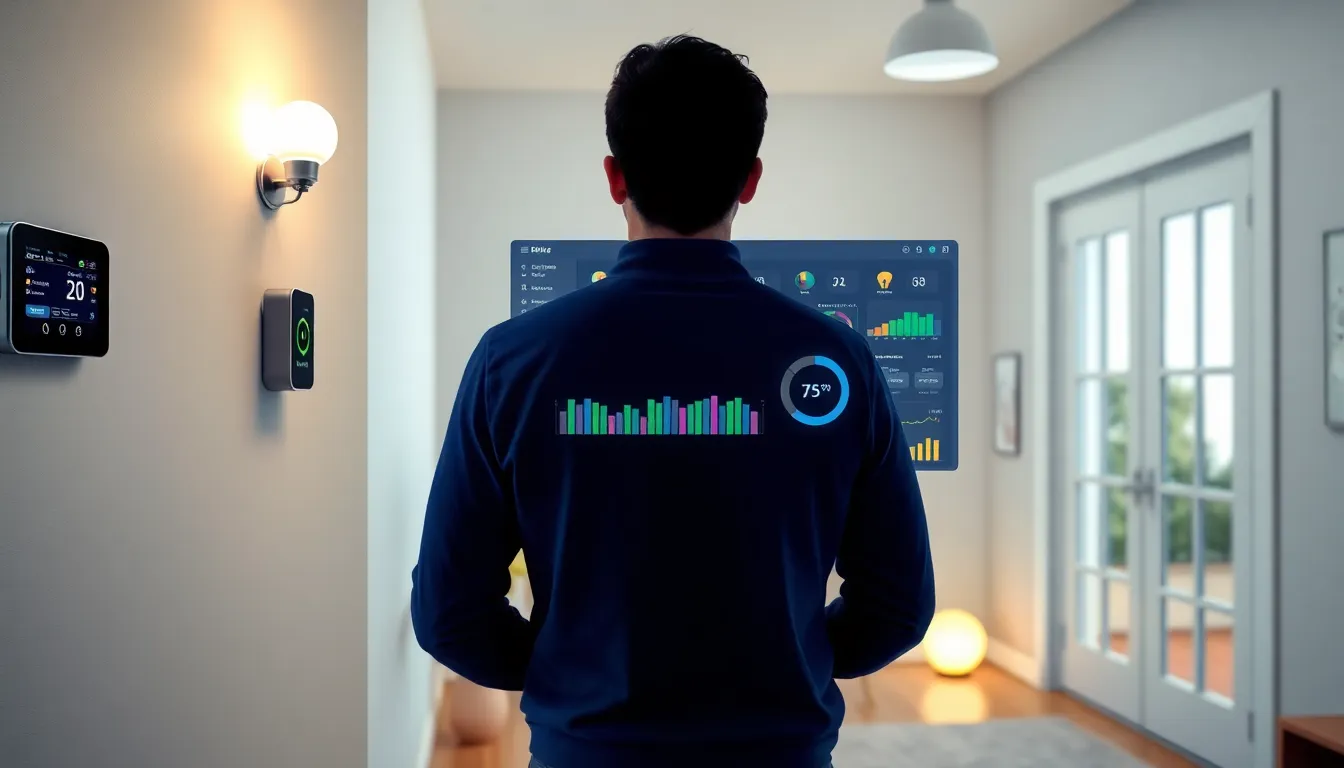In a world where your fridge can text you when you’re out of milk and your thermostat knows when you’re too hot to handle, the Internet of Things (IoT) is revolutionizing energy consumption. It’s like having a personal assistant for your home, but instead of fetching coffee, it’s optimizing your energy use. Imagine saving money while reducing your carbon footprint—all thanks to smart devices that make your life easier.
As energy demands soar and climate concerns mount, IoT energy solutions are stepping up to the plate. They’re not just buzzwords; they’re game-changers that turn your everyday appliances into energy-saving superheroes. So buckle up as we dive into how these connected devices are transforming the way we consume energy, one smart gadget at a time. Who knew saving the planet could be this cool?
Table of Contents
ToggleUnderstanding Internet Of Things Energy
The Internet of Things (IoT) energy landscape represents a shift in how energy consumption is approached. Smart devices play a crucial role in this evolution, facilitating enhanced energy management.
Definition Of Internet Of Things Energy
Internet of Things energy refers to the integration of smart devices and networks that optimize energy usage. Connected appliances gather data, analyze consumption patterns, and automate processes. Sensors monitor energy demand in real-time, enabling adjustments based on user behavior and environmental conditions. Devices such as smart thermostats and energy-efficient light bulbs illustrate this concept, showcasing real-world applications. These technologies promote sustainability and efficiency by minimizing waste and maximizing performance.
Importance In Modern Technology
Modern technology increasingly relies on IoT energy solutions to address growing energy challenges. Improved efficiency leads to substantial cost savings for consumers and businesses. Sustainability becomes a priority, with reduced carbon footprints resulting from smarter energy use. Additionally, IoT provides greater visibility and control over energy consumption, enabling users to make informed decisions. Smart grids further enhance the distribution and management of energy resources, contributing to overall system reliability. Organizations leverage this technology to enhance operational efficiency and meet regulatory demands.
Applications Of Internet Of Things Energy

IoT energy applications transform various sectors, enhancing efficiency and sustainability.
Smart Homes
Smart homes leverage IoT technology to optimize energy consumption. Devices like smart thermostats learn user preferences, adjusting temperatures automatically. Energy-efficient light bulbs integrate seamlessly with some home automation systems, allowing for remote control and scheduled usage. Homeowners can monitor their energy usage in real-time, leading to informed decisions on consumption. Additionally, connected appliances facilitate smarter energy management, reducing wastage. Notifications about peak usage times enable users to adjust habits. Each of these innovations results in significant energy savings.
Industrial Automation
Industrial automation benefits greatly from IoT energy solutions. Sensors monitor equipment health, predicting maintenance needs and minimizing downtime. Factories employ smart meters to assess energy usage patterns, driving efficiency. Automated systems adjust power use based on real-time demand, leading to lower operational costs. This proactive approach not only enhances productivity but also aligns with sustainability goals. Data-driven insights guide strategic decisions that improve resource allocation. Organizations adopting these smart technologies experience operational enhancements, resulting in a competitive edge.
Benefits Of Internet Of Things Energy
The Internet of Things (IoT) energy solutions provide numerous advantages, enhancing energy consumption across various sectors.
Energy Efficiency
Energy-efficient devices play a vital role in reducing overall consumption. Smart thermostats adjust heating and cooling based on occupancy, optimizing usage for comfort and savings. Connected appliances collect data, enabling users to analyze consumption patterns and reduce waste. Sensors in industrial environments monitor equipment performance, ensuring operations run smoothly while minimizing energy use. Employing intelligent lighting systems further cuts down on energy expenditure, as these systems automatically adjust brightness according to natural light levels. IoT energy solutions foster a culture of sustainability by making energy efficiency more accessible to homeowners and businesses alike.
Cost Savings
Significant cost savings emerge through the adoption of IoT energy solutions. Smart technology allows users to track their energy consumption in real time, leading to informed decisions that reduce monthly bills. Homeowners can schedule appliances to operate during off-peak hours, taking advantage of lower energy rates. Businesses experience decreased operational costs as IoT systems identify inefficiencies and facilitate quicker adjustments. Estimates suggest that implementing IoT energy solutions can lower energy bills by up to 30%. As these technologies evolve, their ability to streamline resources continues to benefit individuals and organizations financially, making energy management more efficient and economical.
Challenges And Considerations
The integration of IoT in energy management presents several challenges. Addressing security and data privacy issues becomes crucial as the technology evolves.
Security Concerns
Cybersecurity risks escalate with the rise of interconnected devices. Each connected appliance represents a potential entry point for cyberattacks. Attacks on smart grids or home networks can disrupt not only personal data but also entire energy systems. Companies must invest in robust security protocols to protect sensitive information and ensure system integrity. Regular software updates and vulnerability assessments play crucial roles in maintaining security. Effective encryption methods contribute to safeguarding communications between devices, minimizing risks associated with unauthorized access.
Data Privacy Issues
Data privacy issues arise with the collection of personal consumption patterns through smart devices. IoT solutions analyze user behaviors to optimize energy efficiency, leading to significant data accumulation. Companies collecting this data must adhere to stringent regulations designed to protect privacy. Transparency in data usage empowers consumers to make informed decisions regarding their data. Users should understand what data is collected and how it is utilized by manufacturers. Establishing trust through clear privacy policies becomes essential for companies in the IoT energy sector.
Future Trends In Internet Of Things Energy
Innovation in IoT energy solutions continues to evolve, shaping the future of energy management. Anticipated advancements promise enhanced connectivity and smarter integration of devices.
Innovations On The Horizon
Emerging technologies introduce significant potential for energy efficiency. Artificial intelligence enhances device responsiveness, allowing smart appliances to learn user preferences and optimize energy use. Blockchain technology secures transactions within energy systems, increasing transparency in consumption data. Expect advancements in edge computing, enabling real-time processing of energy consumption data to minimize latency and improve system responsiveness. Connected systems will automate energy distribution, adjusting it according to real-time demands, and reducing waste effectively.
Potential Impact On Sustainability
Sustainability shifts further with increased IoT energy adoption. Smart grid technologies actively enhance the use of renewable energy sources, integrating solar and wind power more efficiently. Enhanced monitoring and management capabilities enable reduced carbon footprints, supporting ambitious sustainability targets. Real-time analytics provide insights into consumption patterns, promoting behavioral changes that lead to lower energy use. As estimated savings grow, utility companies can offer incentives aligned with reduced carbon emissions. Overall, IoT energy solutions cultivate a more sustainable future, encouraging individuals and organizations to adopt greener practices.
The Internet of Things is revolutionizing energy consumption by making it smarter and more efficient. With the rise of connected devices homeowners and businesses can now optimize their energy use while enjoying significant cost savings. This transformation not only addresses the growing energy demands but also supports sustainability efforts by reducing carbon footprints.
As IoT technology continues to evolve the potential for enhanced energy management grows. Future advancements promise to integrate artificial intelligence and blockchain for even greater efficiency and security. The journey toward a more sustainable future is underway and IoT energy solutions are at the forefront of this change, empowering individuals and organizations to make informed energy choices.



